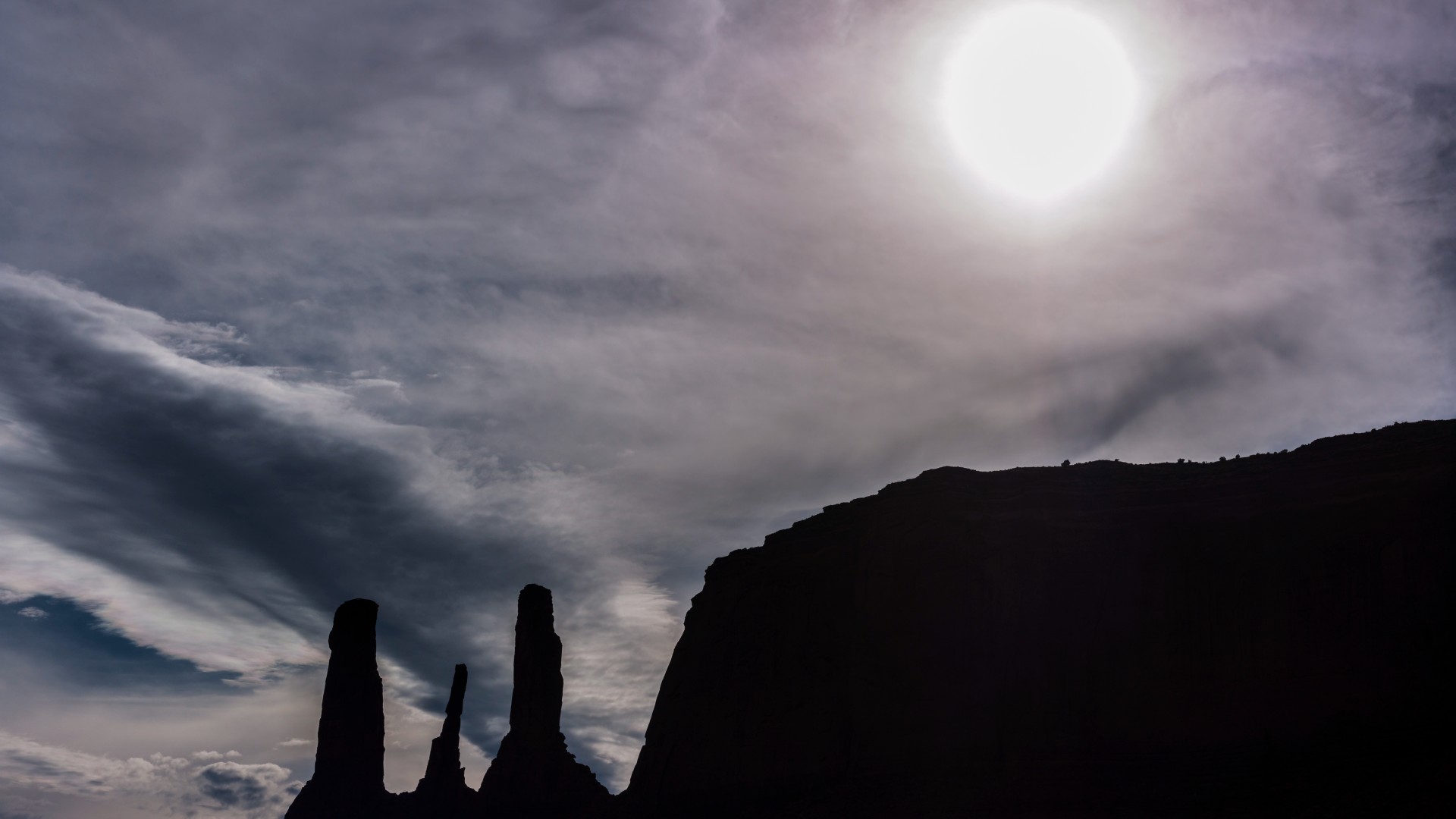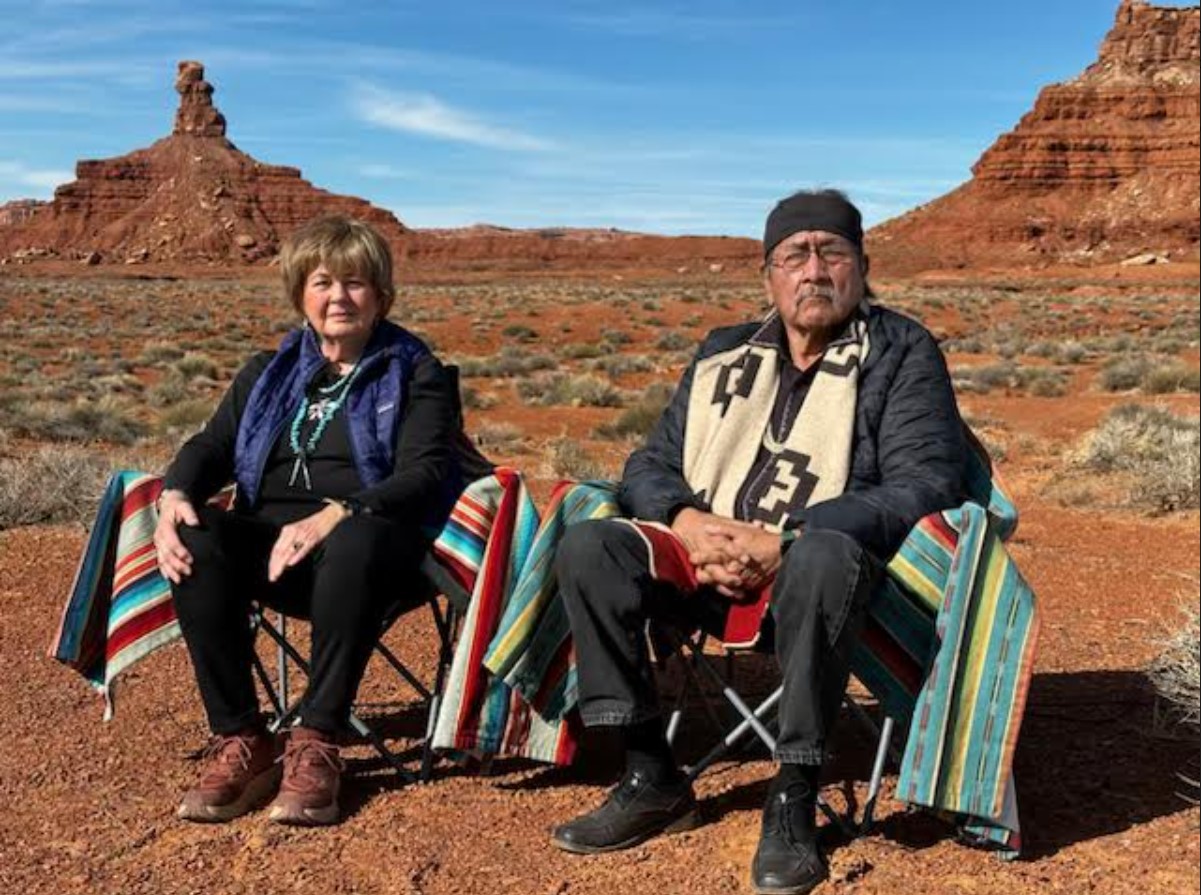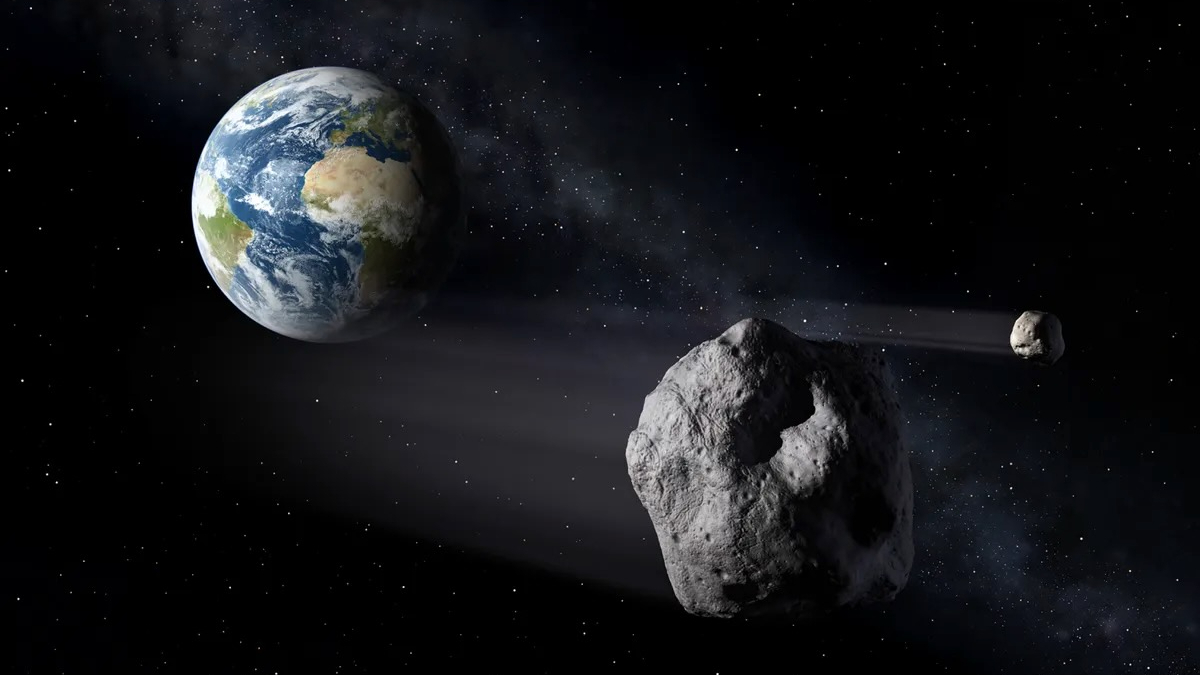'Everything is interrelated.' For the Navajo Nation, the April 8 solar eclipse is a spiritual experience
A perspective on experiencing the total solar eclipse through the eyes of the Navajo Nation.

Breaking space news, the latest updates on rocket launches, skywatching events and more!
You are now subscribed
Your newsletter sign-up was successful
Want to add more newsletters?

Delivered daily
Daily Newsletter
Breaking space news, the latest updates on rocket launches, skywatching events and more!

Once a month
Watch This Space
Sign up to our monthly entertainment newsletter to keep up with all our coverage of the latest sci-fi and space movies, tv shows, games and books.

Once a week
Night Sky This Week
Discover this week's must-see night sky events, moon phases, and stunning astrophotos. Sign up for our skywatching newsletter and explore the universe with us!

Twice a month
Strange New Words
Space.com's Sci-Fi Reader's Club. Read a sci-fi short story every month and join a virtual community of fellow science fiction fans!
The "Great North American Eclipse" is just a little over a week away.
For many in the path of totality, preparing for the total solar eclipse on April 8 includes coming up with a plan of where to watch it, who you are going to watch it with, and securing protective solar glasses to be able to safely witness the procession of celestial transformation in the sky. But for the indigenous communities of North America, it's a whole different type of preparation, and a philosophy that's very different from Western culture.
"The Navajo worldview includes a holistic and ordered universe where everything is interrelated and all the pieces of the universe are enfolded within the whole," Nancy C. Maryboy, founder and president of the Indigenous Education Institute, said in a release. "At the same time, every piece contains the entire universe, creating a network of relationships and processes in constant flux. Unlike Western astronomy, traditional Navajo astronomy is highly spiritual in accordance with a worldview where everything is considered living and sacred."
Related: Total solar eclipse 2024 maps of the 'path of totality'
For the Navajo (Diné) community, it's more than a celestial event — it's about history, self-awareness, and honoring the sun and moon. The sky is the same for everyone, but when it comes to worldview, the eclipse means something completely different. According to experts, it's important to understand that eclipses have always been part of our lives and when they occur, it helps us better understand how the sun, moon, and Earth are all intertwined.
"It's a very personal relationship that native people have with the sky. It's not focused through a telescope, it's not something you've taken from Greek astronomy, it's something that is very personal and creates a way of knowing and a way of living," Maryboy said. "These stories that are told amongst indigenous peoples, they're not just fairy tales, they're not just something you can smile at and go on with your life. They're real, and they are based on real constellations and stars in the sky."
According to the Navajo (Diné) beliefs, instead of waiting for totality to occur and then cheering loudly and celebrating, the entire experience has a more serious tone and strong reverence. For the Navajo, an eclipse is deeply rooted in the respect of the cosmos, and it serves as an event of renewal and contemplation with guidance passed along from generations before.
Breaking space news, the latest updates on rocket launches, skywatching events and more!
"Our elders tell us that the sun, the moon and the Earth go through constant renewal by aligning themselves," Dr. David Begay, a Navajo astronomer, explained in the same release.

Available in a handy four-pack to kit out the whole family, these Celestron EclipSmart Solar Eclipse Glasses will keep you well protected while you view the eclipse. And don't miss our full guide to the best solar eclipse glasses and the best solar viewing kits to make the most of your experience.
"It's one of the natural laws that's been observed over the years and the sun rebalances itself with the alignment. Over the years, people must have experienced that looking at the sun directly during an eclipse can hurt your eye, damage your eye, so it's a restriction. When there's an eclipse, they tell people, 'Go inside.' Respect the cycle and let time pass."
But deciding how to watch and experience an eclipse comes down to the individual, and for those deciding to venture outside, there's an option for a more modern approach. While many adhere to original rituals and traditions, the development of safety viewing glasses for those in the path of totality in more recent times has allowed families to have another option while taking part in the tradition.
"It's all about being reverent to what's going on, being very quiet. Traditionally people would be inside and they wouldn't drink anything or eat anything," Maryboy said.
"But they would either do that during just the totality or for the entire eclipse and it all depends on your family yourself, your community with what you're going to follow. Today, people do go out and they do look at the eclipse in many instances, but we have glasses now that protect your eyes, which we've never had way back hundreds of years ago when these protocols were laid down."
No matter what each individual decides, at the end of the day, those within the Navajo (Diné) community hope that for the upcoming solar eclipse and the many more to come there can be a better understanding by other cultures of their beliefs and how special these cycles are.
"We think of it as something that fits into a Navajo story and provides rules for living. Living in harmony with that cosmic order, living your life on Earth," Maryboy said. "I would like to see people realize how complex and beautiful Navajo astronomy is and how people live by it. It's not just something that you go out and jump up and down, shriek and get so excited … it's more like expressing you're all about it. You're seeing a once-in-a-lifetime event and you want to give it the honor and respect it deserves."
To learn even more about Navajo astronomy and their knowledge of the cosmos, check out these informational videos from the Exploratorium.

Meredith is a regional Murrow award-winning Certified Broadcast Meteorologist and science/space correspondent. She most recently was a Freelance Meteorologist for NY 1 in New York City & the 19 First Alert Weather Team in Cleveland. A self-described "Rocket Girl," Meredith's personal and professional work has drawn recognition over the last decade, including the inaugural Valparaiso University Alumni Association First Decade Achievement Award, two special reports in News 12's Climate Special "Saving Our Shores" that won a Regional Edward R. Murrow Award, multiple Fair Media Council Folio & Press Club of Long Island awards for meteorology & reporting, and a Long Island Business News & NYC TV Week "40 Under 40" Award.

